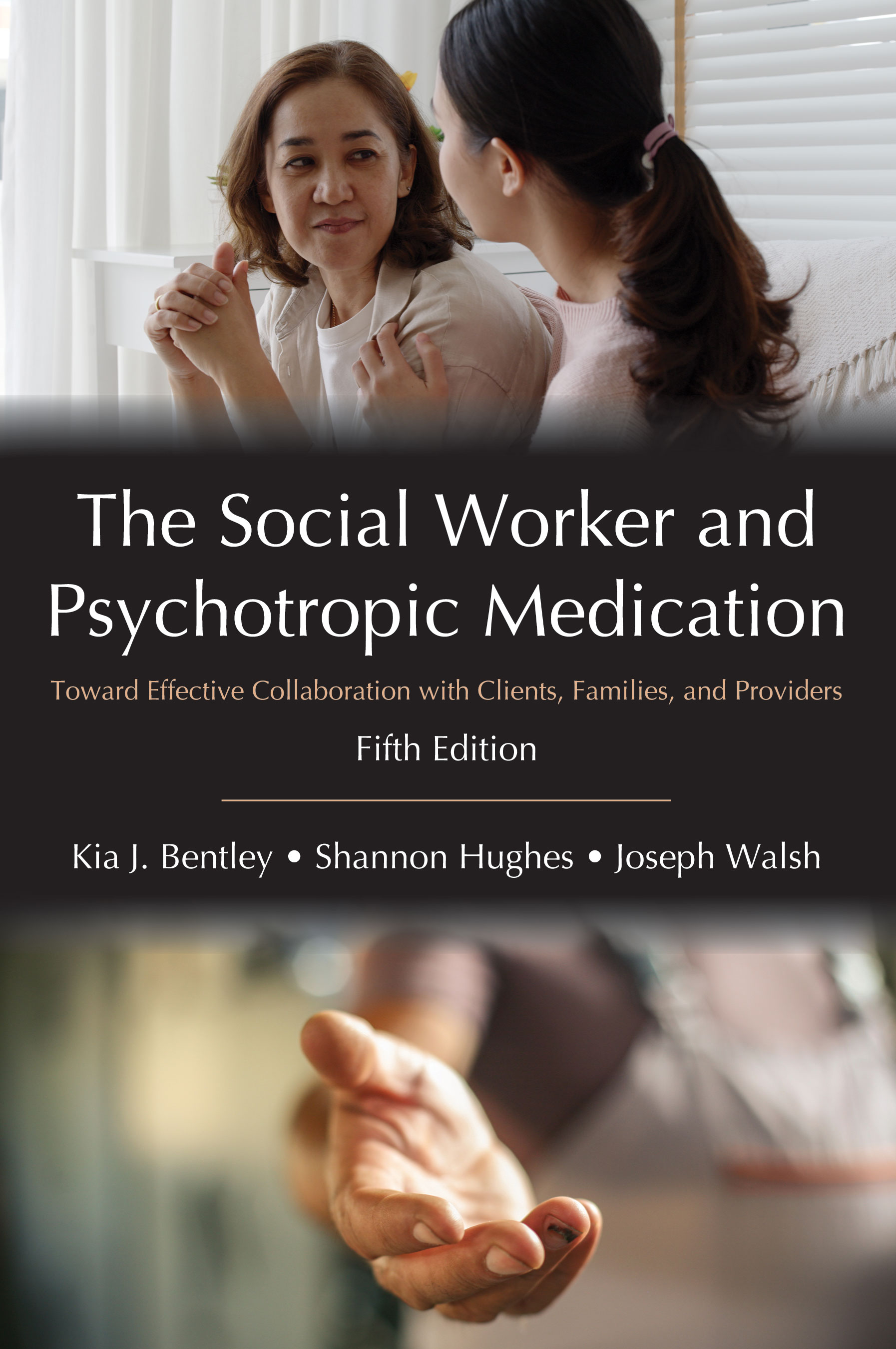Part I: THE CONTEXT OF SOCIAL WORK ROLES IN MEDICATION MANAGEMENT
1. The Larger Sociocultural and Political Context of Psychopharmacology and Social Work
2. Overview of Social Work Roles in Medication Management Across Settings
Part II: A PRIMER ON PSYCHOPHARMACOLOGY AND DRUG RESEARCH
3. The Basics of Psychopharmacology
4. The Five Classes of Medication
5. Medication Issues Across Special Populations
6. The FDA and Drug Approval Process
Part III: KNOWLEDGE AND SKILLS FOR EMBRACING PSYCHOSOCIAL ROLES
7. Give Voice to the Meaning of Medication
8. Participate in Shared Decision-Making
9. Make and Manage Referrals for Medication
10. Provide Medication Psychoeducation for Clients and Families
11. Teach Skills and Strategies to Help Monitor and Manage Medication
12. Address Medication Adherence and Discontinuation
Part IV: FUTURE DIRECTIONS
13. Future Directions in Psychopharmacology: Implications for Social Workers
Glossary

432 pages, $54.95 list
1-4786-5001-X
978-1-4786-5001-0
© 2024
paperback
eBook availability
The Social Worker and Psychotropic Medication
Toward Effective Collaboration with Clients, Families, and Providers
Fifth Edition
A generation of social work students has benefited from Kia Bentley and Joseph Walsh’s practical approach to the social worker’s role in psychopharmacology. New coauthor Shannon Hughes brings even more fresh ideas to the updated Fifth Edition. Important updates include:
• updated and expanded drug information and tables including names, typical dosages, potential adverse effects, as well as never-before-included FDA approval information
• updated content on psychogenomics as well as added new content on medication use with sexual minorities and gender diverse people
• more explicit criticisms of the chemical imbalance theory and the use of the term “anosognosia”
• more comprehensive guidelines for talking to children, parents, and teachers about psychiatric medication
• expanded content on shared decision-making, including a presentation on what we think “truth-telling” about medication looks like in the 21st century
• explicit content on the centrality of avoiding both subtle and overt coercion
• new section on medication discontinuation and “deprescribing” and the role of social work in supporting these trends
• expanded section on prescription-writing privileges to account for the recognition of physician assistants, nurse practitioners, and pharmacists in those roles
• new section on the use of psychedelics in psychiatry
• acknowledgement of the potential impact of the COVID-19 pandemic and telemedicine on the future of both social work and psychopharmacological practice
• significantly increased attention to the human rights/social justice interface of social work and psychopharmacology
• updated and expanded drug information and tables including names, typical dosages, potential adverse effects, as well as never-before-included FDA approval information
• updated content on psychogenomics as well as added new content on medication use with sexual minorities and gender diverse people
• more explicit criticisms of the chemical imbalance theory and the use of the term “anosognosia”
• more comprehensive guidelines for talking to children, parents, and teachers about psychiatric medication
• expanded content on shared decision-making, including a presentation on what we think “truth-telling” about medication looks like in the 21st century
• explicit content on the centrality of avoiding both subtle and overt coercion
• new section on medication discontinuation and “deprescribing” and the role of social work in supporting these trends
• expanded section on prescription-writing privileges to account for the recognition of physician assistants, nurse practitioners, and pharmacists in those roles
• new section on the use of psychedelics in psychiatry
• acknowledgement of the potential impact of the COVID-19 pandemic and telemedicine on the future of both social work and psychopharmacological practice
• significantly increased attention to the human rights/social justice interface of social work and psychopharmacology